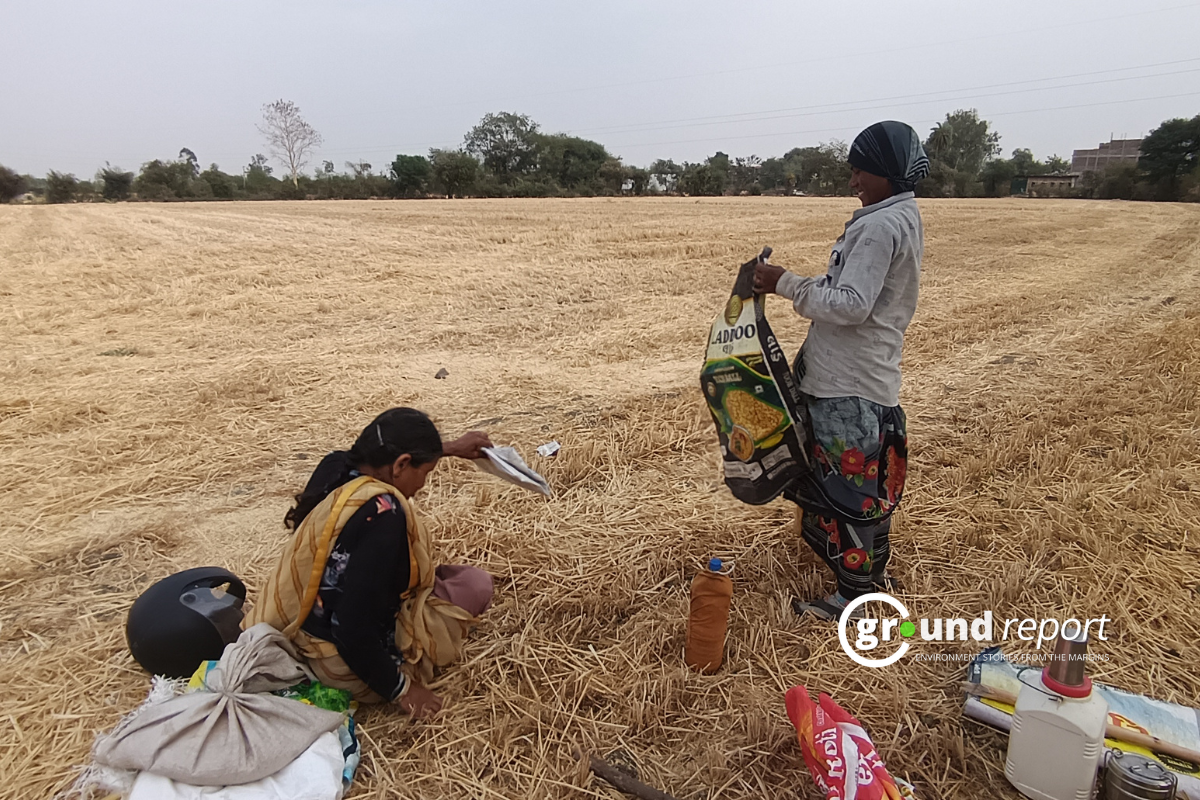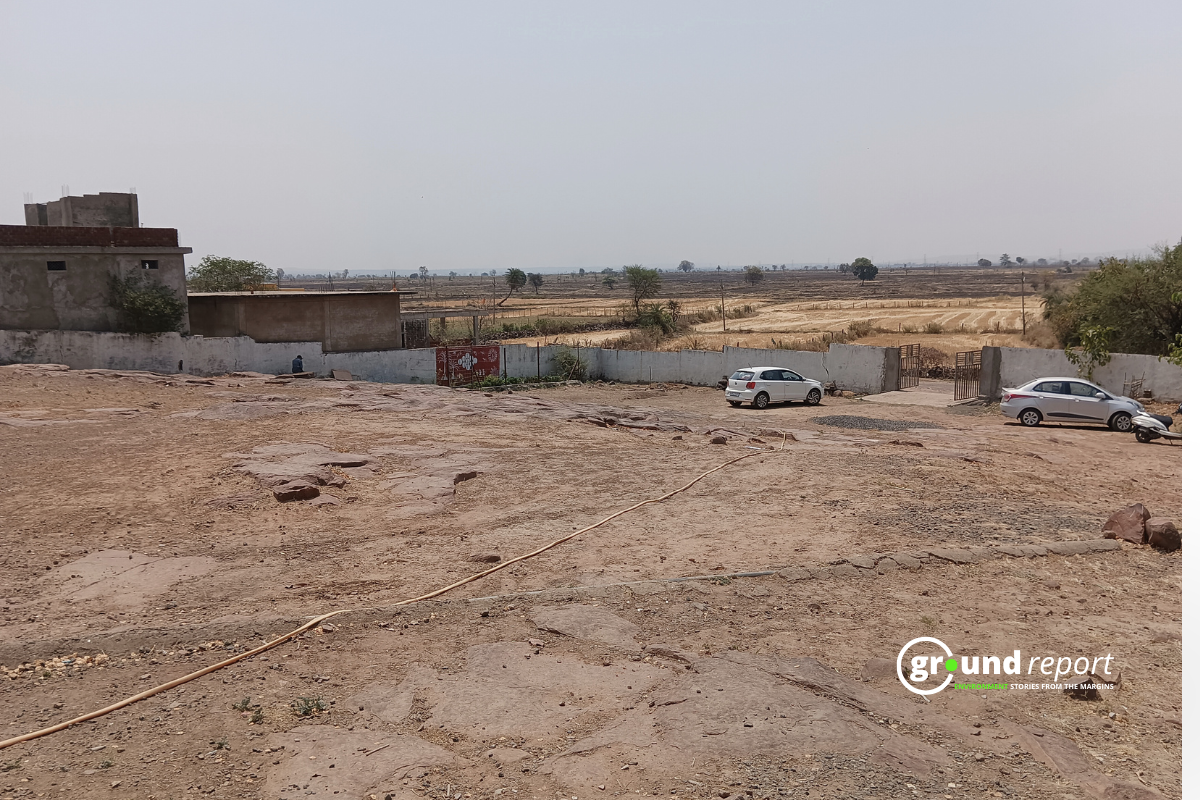In the scorching heat of April, Lalita Astaya, a thirty-five-year-old woman, and her friend Krishna Prajapati, aged sixty-five, are seen gathering leftover wheat grains from a recently harvested field near Khajuri Sadak village in the Bhopal district of Madhya Pradesh. The landscape wears a desolate look post-harvest, with the only remnants being these stray grains, gathered by the two women as a means of survival. Their purpose is to process the leftover wheat grains into flour for their daily sustenance.
Wheat harvesting is going on in the central Indian state of Madhya Pradesh. As the temperature soars over 40 degrees Celcius in the Malwa region of the state, farmers are hurriedly harvesting their crops in a bid to secure competitive prices in the market and the concerned that their crops may be at risk of catching fire due to the heat.
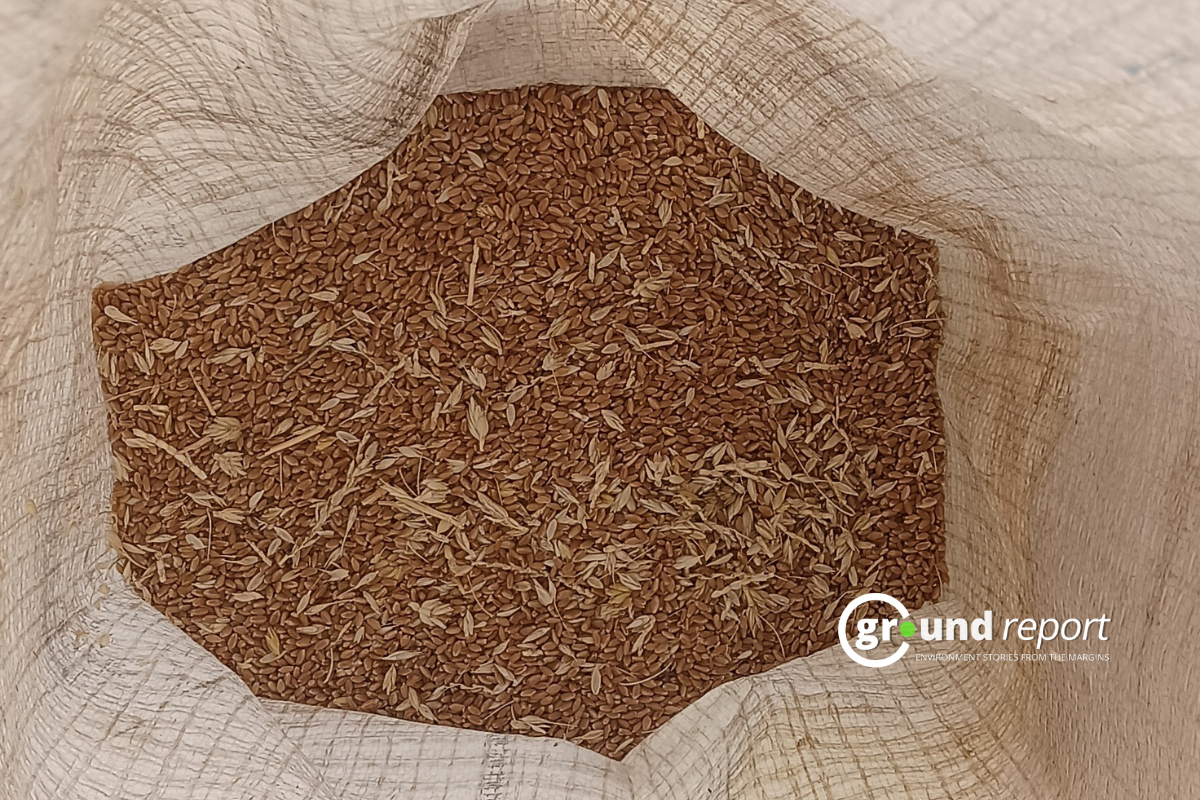
Lalita and Krishna, both landless agricultural labourers are from Bairagarh in the Bhopal district. They live about 15 km away from the farms. Despite the scorching heat, every morning they set out from their homes with the hope of gathering leftover grains from recently harvested fields. Armed with plastic bags, they diligently collect the wheat remnants, managing to gather around 5 to 6 kg of wheat each day.
When asked why they work outdoors in such harsh weather conditions, Krishna responds,
“There are no wages, and inflation has increased, so we gather. If we don’t collect the grains, what will we eat?”
As per the 2011 census, India is home to 14 crore 43 lakh 33 thousand 690 landless agricultural labourers. Of this population, 62.2 percent are women. The Meteorological Department has issued warnings of severe heat waves expected to hit Madhya Pradesh this year. Additionally, a recent study highlighted that women are disproportionately affected by heatwaves compared to men. This adds another layer of concern for women like Lalita and Krishna.
For Lalita, the priority is to provide wheat flour for her family of four. Although her family receives rations through the Public Distribution System (PDS), she finds it insufficient. She questions,
“20 kg of ration for four people. Do you think this will fill our stomachs?”
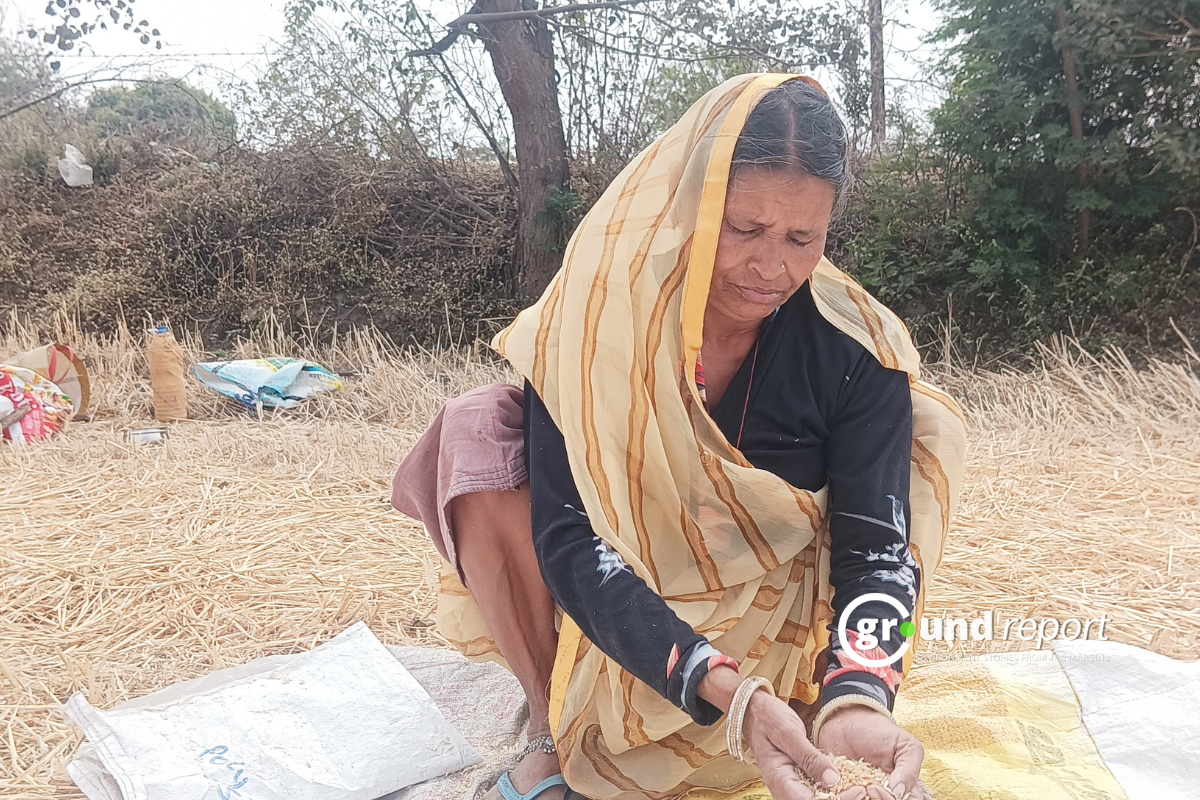
In such circumstances, to meet her family’s nutritional needs, Lalita has to brave the scorching weather. Lalita shares that she manages both household chores and outdoor work. The heavy workload exacts a toll on her body, leading to severe pain when she tries to rest at night.
“We might suffer in the extreme heat, but this work has to be done,” she laments.
Lalita’s day begins at 5 in the morning. The first task on her agenda is cooking for her family. By around 8 o’clock, she sets out to gather wheat. She wanders various fields, picking wheat wherever she finds it. Sometimes, they have to visit multiple fields when the yield is not sufficient. However, it’s not always straightforward. Lalita shares,
“Many Patels (farm owners) don’t permit us to enter their fields. Sometimes, they even insult and chase us away.”
According to data presented in Parliament by Union Minister Sadhvi Niranjan Jyoti, 80.10 crore people nationwide receive ration through the Public Distribution System (PDS). This is facilitated through 5.45 lakh government ration shops, also known as Fair Price Shops. Under the Central Government’s Antyodaya Anna Yojana (AAY), each family is entitled to receive a total of 35 kg of ration.
However, Krishna reveals that she only receives 18 kg of grains. She expresses frustration, noting that the shopkeeper disregards her complaints about the shortage of food grains.
“The shopkeeper never listens to our complaints about food shortages,” she says.
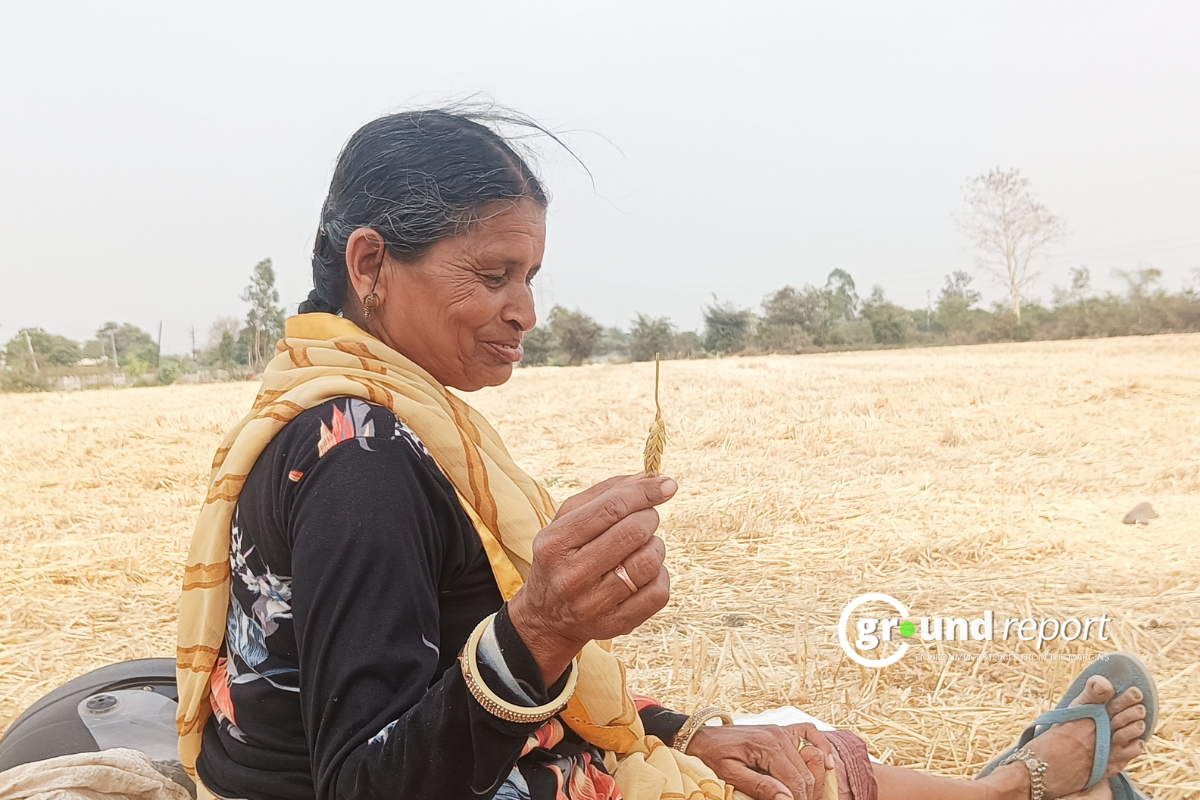
As an agricultural labourer, Lalita earns between Rs 120 to a maximum of Rs 220 a day by weeding vegetable fields. She expresses,
“Our hourly wages used to be Rs 25 to 30. It is challenging to manage our household with such low wages.”
To address the economic challenges faced by workers in the unorganised sector, both the Central and State Governments have introduced numerous schemes. One such initiative is the Pradhan Mantri Shram Yogi Maandhan Yojana, a pension scheme aimed at providing financial security to workers aged 18 to 40 in the unorganised sector. Under this scheme, workers in this age group are required to contribute Rs 55 to 200 per month until the age of 60, with the government matching the same amount. Upon reaching 60 years of age, these workers are entitled to receive a monthly pension of Rs 3,000 from the government.
thirty-five years old, Lalita is eligible to participate in this scheme. However, they are unaware of its existence. When questioned about government financial assistance. While her friend Krishna mentions that she only receives Rs 600 as a pension every month.
The pension scheme Krishna refers to is the Indira Gandhi National Widow Pension Scheme. Under this initiative, the Central Government provides a pension of Rs 200 to every widowed above 40 years of age who holds a BPL card. The state government supplements this with an additional Rs 400, resulting in a total of Rs 600 received by the beneficiary.
Neither Krishna nor Lalita have any information about the Pradhan Mantri Shram Yogi Maandhan Yojana (PM-SYM). Nor do they get any benefit from this scheme. In response to a question asked in Parliament by local MP Sadhvi Pragya Singh Thakur in March 2021, it was told that a total of 1.23 lakh people have registered under PM SYM in Madhya Pradesh.
However, these two women have sadly been left out of the scheme and the data means nothing to them. Describing her situation, Krishna further adds,
“We barely earn anything as laborers. The government isn’t offering any assistance either, so if someone falls ill, they’re forced to take out a loan for treatment,”
She further notes that she isn’t even benefiting from the Ayushman Bharat scheme. In this scenario, climate change poses a significant financial burden for women like Krishna and Lalita, who work tirelessly in open environments, exposing themselves to extreme heat waves. Moreover, with their food needs unmet, they’re compelled to venture out in the sun to collect leftover wheat grains.
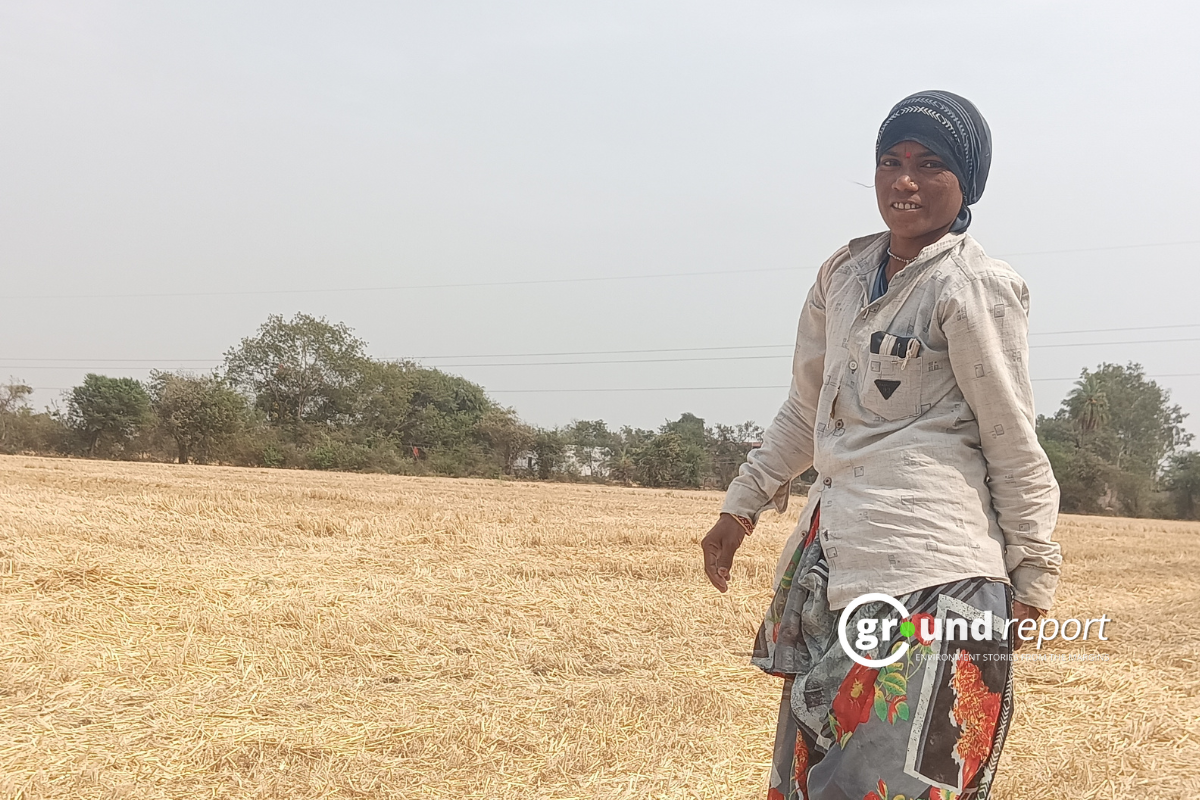
Amidst the election fervour gripping the state, when questioned about their expectations from political leaders, Lalita asserts,
“The government should simply provide me with a sewing machine so that I can earn without having to leave home.”
In discussions with Ground Report, both women consistently underscore the challenges of leaving their homes to work. It’s important to note that our government lacks a heat action plan for these labourers during summer. These women are disproportionately affected by climate change due to their economic, racial, and gender identities. However, they find themselves unheard and unrepresented in the election process.
Keep Reading
Part 1: Cloudburst in Ganderbal’s Padabal village & unfulfilled promises
India braces for intense 2024 monsoon amid recent deadly weather trends
Support us to keep independent environmental journalism alive in India.
Follow Ground Report on X, Instagram and Facebook for environmental and underreported stories from the margins. Give us feedback on our email id greport2018@gmail.com.
Don’t forget to Subscribe to our weekly newsletter, Join our community on WhatsApp, and Follow our YouTube Channel for video stories.
